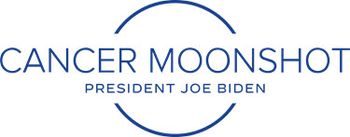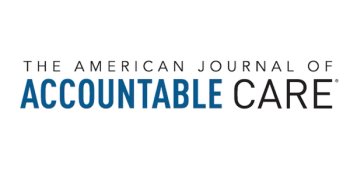
Policy
Latest News


Guidance for Evaluating for Bleeding Disorders in Suspected Child Abuse

AACR Progress Report Highlights New Drugs Along With Disparities, Challenges of Obesity, Aging Population
Latest Videos

CME Content
More News

Danielle Carnival, PhD, addressed the National Comprehensive Cancer Network Policy Summit on Friday.

On this episode of Managed Care Cast, we speak with 2 authors of an article in the September issue of The American Journal of Managed Care®, which focused on the results of their evaluation of an intensive, community-based care management program for dual-eligible Medicaid ACO high-risk patients.

Streamlining the prior authorization process can improve care accuracy and patient access to care, writes Siva Namasivayam, CEO of Cohere Health.

A recent study showed that receiving Supplemental Nutrition Assistance Program benefits was not enough to address food insecurity among families whose children were fighting acute lymphoblastic leukemia.

Newer therapies, such as ketamine or esketamine, or the broader use of bright light therapy, made an updated clinical practice guideline for treating major depressive disorder (MDD), but psilocybin and cannabis did not.

Nearly 30% of youths are affected with worsening mental health by the end of adolescence, with anxiety typically presenting in childhood and depression during the teenage years, but the problem is even more acute for Black and Latinx youth.

Russell Rotondo, MD, FACC, medical director of clinical strategy and innovation for cardiology at Cohere Health, discusses the myriad positive ways utilization management programs can have an impact on patient outcomes in cardiovascular care.

A new review article explains the role of biologics in treatment systemic lupus erythematosus (SLE) and lupus nephritis.

COVID-19–driven telehealth exposure positively shifted physician respondents’ perceptions of telehealth effectiveness, and most are likely to continue use if temporary telehealth regulatory flexibility is permanently extended.

State surprise billing protections decreased emergency department (ED) out-of-pocket payments to such an extent that ED visits actually increased.

David E. Koren, PharmD, MPH, BCPS, AAHIVP, FIDSA, infectious disease clinical pharmacist at Temple University Hospital, provides an update on current preventive efforts to address the monkeypox public health emergency in the United States and what steps are needed to protect at-risk populations.

Using systemic corticosteroids (SCS) to treat chronic rhinosinusitis with nasal polyps (CRSwNP) has been linked to adverse outcomes among patients, prompting these study investigators to compare their health care resource utilization with that of patients who have CRSwNP but don’t use SCS.

This article presents a detailed descriptive analysis of how Massachusetts and Minnesota implemented Medicaid accountable care organization (ACO) models for their managed care population.

Following a recent update to the diagnostic criteria for borderline pulmonary hypertension (PH), which is often associated with left heart failure (LHF), outcomes among patients with both conditions remain uncertain.

The authors describe a pay-for-performance initiative targeting behavioral health providers, which was introduced by a large Medicaid managed care organization across multiple states.

An editorial in response to the editor in chief’s December 2021 letter discusses alignment of specialist physicians with value-based care initiatives.

CVS announces its plan to buy Signify Health for $8 billion; government budgets and low reimbursement could limit the ability for new moms to stay on Medicaid for a year after childbirth; the long-lasting symptoms of COVID-19 could be keeping millions of people out of the workforce.

Medication-at-home pharmacy is an innovative method of medication management that is vital to the success of the health care system.

Understanding if local prescription patterns are influenced by guidance could help policymakers understand what is needed to further encourage a shift to asthma inhalers with less of a climate impact.


Do-it-yourself (DIY) automated insulin delivery systems have gained rapid uptake, yielding self-reported improvements in glycemic control and quality of life for patients, but creating unique challenges for health care providers (HCPs).

Patient confidentiality is a major reason why minors do not seek out prevention, testing, and treatment services for sexually transmitted infections (STIs) and HIV.

The FDA is considering Pfizer/BioNTech’s request for its updated COVID-19 booster; California Governor Gavin Newsom rejects bill allowing supervised injection sites; a new report from the CDC shows 2019-2020 life expectancy fell in all states.

As Medicare Advantage increasingly becomes the dominant form of Medicare coverage, Congress must improve transparency of programmatic costs and benefits to promote beneficiary choice.

On this episode of Managed Care Cast, we speak with the author of an article in the August issue of The American Journal of Managed Care® about the premium tax credits for health insurance purchased through the health care marketplace, which were recently extended for another 2 years with the signing of the Inflation Reduction Act.














